If you sustained war wounds the last time you tried to medicate your pet, you know the process can be frustrating and stressful. Many uncooperative pets make medicating them extremely challenging, so our team at WesVet Animal Hospital would like to provide expert tips, to help ease the process.
#1: Stay calm when medicating your pet
You will likely feel stressed when you prepare to medicate your pet, especially if your previous experience was not good. However, your pet picks up on your tense feelings, and mirrors your mood, so take these steps to make the situation calm for you and your pet.
- Relax — Take time to breathe deeply and relax, before attempting to treat your pet.
- Location — If you had a bad experience in a particular room, try a different location for your next attempt at medicating your pet.
- Time — Choose a time when you won’t be rushed, and will have adequate time to go slowly, and not hurry the process.
- Restraint — Start with the lowest restraint level, to prevent your pet from panicking or feeling overwhelmed.
- Trust — If your first attempt is not successful, remain calm, and do not scold your pet. You can try again later, but rebuilding your pet’s trust will take time if you punish them.
#2: Use bribery when medicating your pet
Some pets are extremely food-motivated, and you can use this trait to your advantage when medicating them.
- Timing — Ensure you medicate your pet when they are hungry. Hungry pets are typically more cooperative, and will take treats more willingly.
- Smelly treats — Hide the medication in a strong smelling treat, to mask the pill’s taste and smell.
- Decoy treats — Make several treats, but medicate only one. Give your pet a few unmedicated treats, and sneak in the medicated treat between unmedicated ones.
- Dropped treats — Prepare a medicated treat, and “drop” the treat while preparing a meal for yourself.
#3: Practice safe manual techniques when medicating your pet
Manual pilling may be the best approach for some pets. To ensure you don’t injure your pet, or lose a finger in the process, follow these steps:
- Hold your pet’s medication in your right hand, if you are right-handed.
- Use your left hand to gently, but firmly, grasp your pet’s muzzle. For cats and brachycephalic dogs, place your thumb and fingers along their cheek bones. For other dog breeds, grasp their upper jaw, folding their upper lip against their teeth.
- Use your right middle finger to open their lower jaw.
- Place the medication as far back over their tongue as possible, and quickly close their mouth.
- Gently blow on their nose, or massage their throat, to encourage swallowing.
#4: Use a diversion technique when medicating your pet
When pets are focused on other, more interesting issues, they are more likely to unquestionably take a medicated treat. Methods you can try include:
- Competition — If you have several household pets, create excitement and anticipation that they will all receive a treat. Hand everyone treats, ensuring the medicated treat goes to the right pet.
- Distraction — Take your pet on a walk or a car ride, and give them a medicated treat while they are focused on their new environment.
#5: Take special consideration when medicating your cat
Cats can be especially difficult to medicate, and you may need extra steps, to ensure they get their medication.
- Burrito cat — If your cat becomes aggressive when you medicate them, wrap them in a towel to make the process less dangerous.
- Use their paw — If your cat’s medication is a liquid or a pill that can be crushed—always ask our veterinary professionals if your pet’s pill can be crushed, because some crushed pills are not properly absorbed—mix the medicine with a smearable substance, such as peanut butter or anchovy paste. Smear the concoction on their paw, and they will likely groom away the offending substance.
#6: Ask our WesVet Animal Hospital team for help medicating your pet
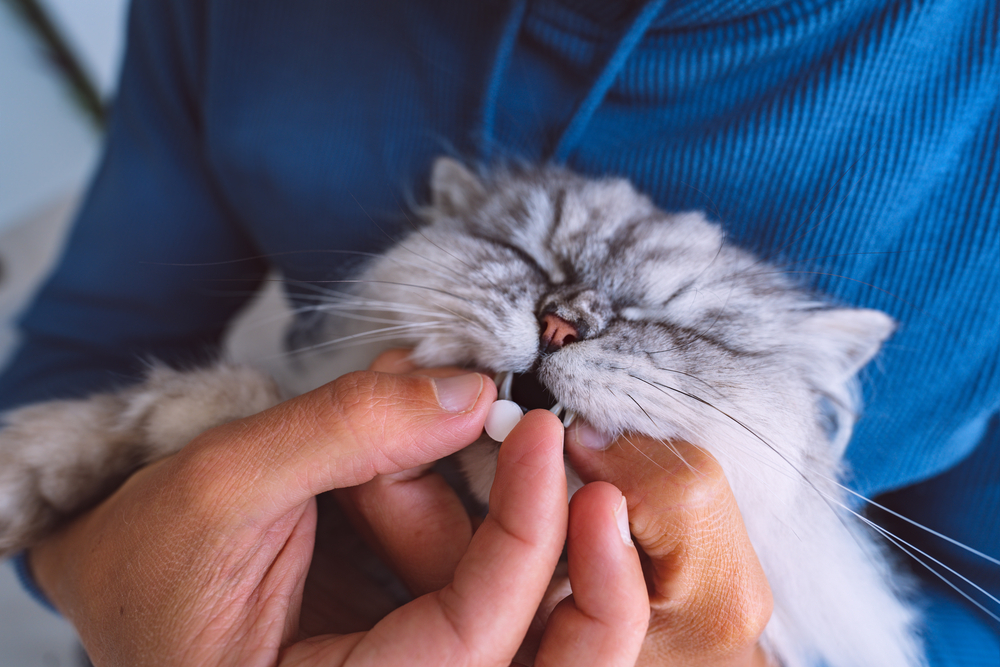
If you are having difficulty medicating your pet, ask our team to help. We can offer assistance in several ways.
- Demonstrate — We will be glad to demonstrate methods to appropriately medicate your pet.
- Compounded drugs — Some pet medications can be compounded and given in alternate forms, or flavored to make them more palatable.
- Other drugs — We may also be able to use a long-acting injectable medication to treat your uncooperative pet.
#7: Follow the instructions when medicating your pet
When your pet is prescribed medication, follow the instructions, to ensure they receive the appropriate treatment.
- Timing — When the instructions say to administer the medication twice or three times daily, that means you should medicate your pet every 12 hours or 8 hours, respectively. The spacing between administration is important, to ensure the appropriate drug amount will be in your pet’s bloodstream to achieve the desired result, and not become toxic.
- Length — You should always finish out the medication course that our veterinary professionals prescribe.
By following our expert tips, medicating your pet can be less stressful. If you would like help medicating your pet, contact our team at WesVet Animal Hospital, so we can provide assistance.

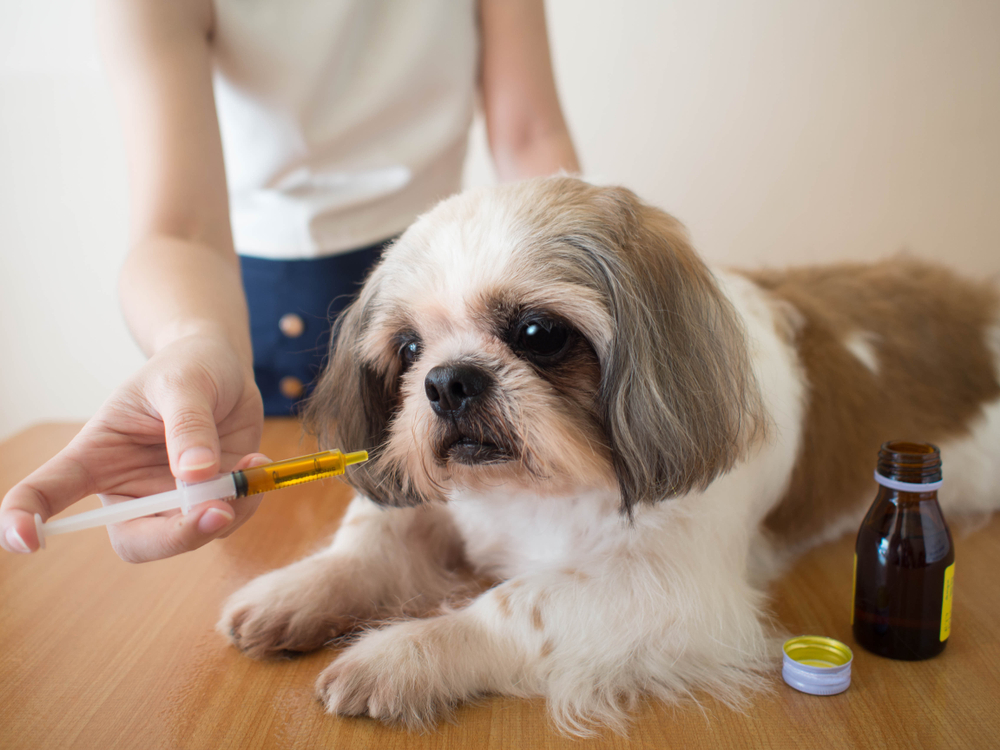
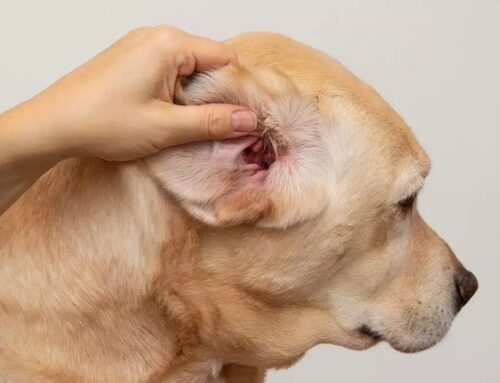
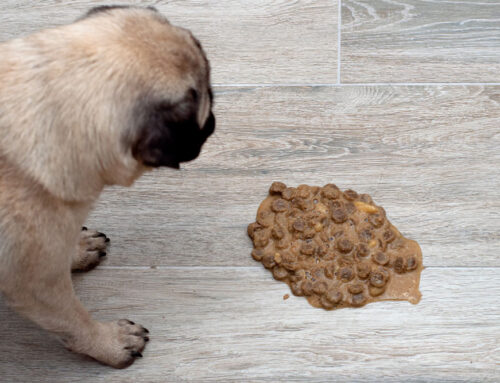
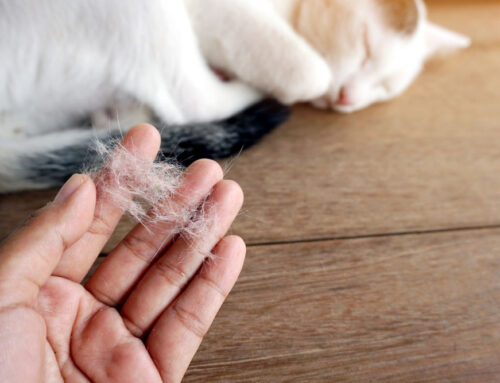


Leave A Comment